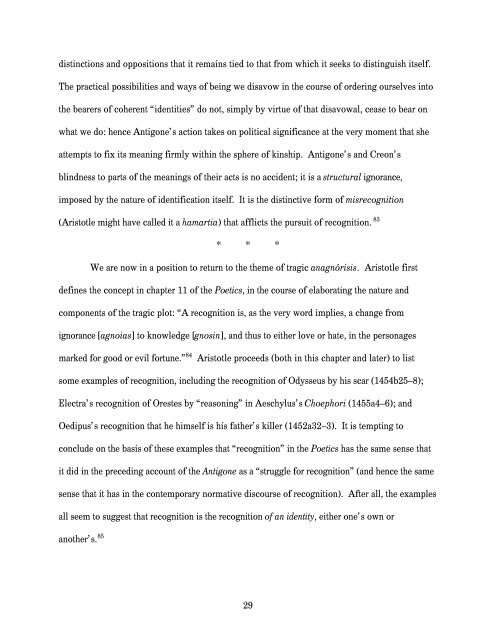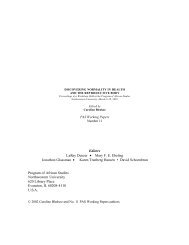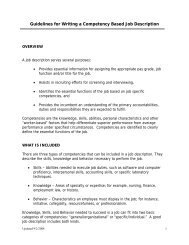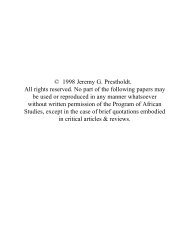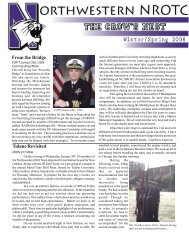TRAGIC RECOGNITION: ACTION AND IDENTITY IN ANTIGONE ...
TRAGIC RECOGNITION: ACTION AND IDENTITY IN ANTIGONE ...
TRAGIC RECOGNITION: ACTION AND IDENTITY IN ANTIGONE ...
You also want an ePaper? Increase the reach of your titles
YUMPU automatically turns print PDFs into web optimized ePapers that Google loves.
distinctions and oppositions that it remains tied to that from which it seeks to distinguish itself.<br />
The practical possibilities and ways of being we disavow in the course of ordering ourselves into<br />
the bearers of coherent “identities” do not, simply by virtue of that disavowal, cease to bear on<br />
what we do: hence Antigone’s action takes on political significance at the very moment that she<br />
attempts to fix its meaning firmly within the sphere of kinship. Antigone’s and Creon’s<br />
blindness to parts of the meanings of their acts is no accident; it is a structural ignorance,<br />
imposed by the nature of identification itself. It is the distinctive form of misrecognition<br />
(Aristotle might have called it a hamartia) that afflicts the pursuit of recognition. 83<br />
* * *<br />
We are now in a position to return to the theme of tragic anagnôrisis. Aristotle first<br />
defines the concept in chapter 11 of the Poetics, in the course of elaborating the nature and<br />
components of the tragic plot: “A recognition is, as the very word implies, a change from<br />
ignorance [agnoias] to knowledge [gnosin], and thus to either love or hate, in the personages<br />
marked for good or evil fortune.” 84 Aristotle proceeds (both in this chapter and later) to list<br />
some examples of recognition, including the recognition of Odysseus by his scar (1454b25–8);<br />
Electra’s recognition of Orestes by “reasoning” in Aeschylus’s Choephori (1455a4–6); and<br />
Oedipus’s recognition that he himself is his father’s killer (1452a32–3). It is tempting to<br />
conclude on the basis of these examples that “recognition” in the Poetics has the same sense that<br />
it did in the preceding account of the Antigone as a “struggle for recognition” (and hence the same<br />
sense that it has in the contemporary normative discourse of recognition). After all, the examples<br />
all seem to suggest that recognition is the recognition of an identity, either one’s own or<br />
another’s. 85<br />
29


